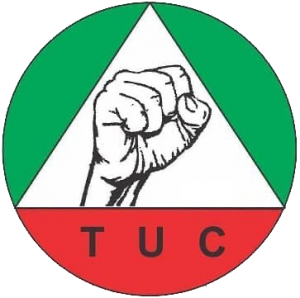•Lists 15-point solutions to end inflation, insecurity
•Demands emergency food imports
The Trade Union Congress (TUC) has urged the federal government to stop adhering to all dictates of International Monetary Fund (IMF) and Work Bank, but rather develop home-grown solutions to address the country’s economic woes.
He said the federal government should go back to the actual value of naira which it said used to revolve around N450 and N650 to a dollar.
As part of immediate interventions to arrest worsening food crisis, the trade union centre suggested that the federal government should embark on emergency food imports to fill the gap in supply.
In view of this, the TUC stated that it had resolved to engage further with government based on the 15- point solutions it had proffered rather than join the national protest being called by the Nigeria Labour Congress.
Addressing journalists in Abuja, yesterday, the TUC President declined to provide the amount being proposed by the TUC with regard to the new minimum wage.
On why the TUC would not go on strike at the end of the 14-day ultimatum, Osifo said it reviewed the implementation of the agreement with government and found out that government had shown some level of seriousness in executing the agreement.
He listed steps taken by the government to include the payment of four months wage award, carried out visitation to the refineries and resolved crisis at RTEAN in Lagos state.
He said based on the progress attested to during an inspection visit to the Port-Harcourt refineries and that of Warri, the TUC was confident that the old refinery in Port-Harcourt could resume petrol production latest by the end of March this year, while the other ones would be ready in about six months.
Speaking on the continued fall in the value of Naira with the resultant inflationary trend, Osifo said the country’s currency appeared to have been undervalued by the floating of currency Naira by Central Bank Nigeria.
He said the monetary policy managers should take measures to revalue the currency and to determine the true value of Naira.
He said: “Allowing the official exchange rate to devalue alongside the black market rate that does not follow market fundamentals is not the right approach to accomplish this.
“Local and international financial institutions have determined the true value to be between N580 to N650 to a dollar in June/July 2023.
“The federal government needs to work towards achieving this realistic rate. Once its achieved therefore, the exchange rate will then be adjusted on an annual basis using factor K that will be determined by US/NGN inflation figures.
“This adjustment can also be made every six months to avoid sudden shock. It does not make sense economically to allow Naira to float freely against an international currency that is in acute shortage of supply due to excessive demand.
“With this in place, investors could forecast the returns on their investments with some degree of certainty. This stability will result in the restoration of confidence in the market and foreign direct investors will monitor this stability over time before eventually returning to the country in droves,” he said.
The TUC president said the measure could be easily implemented by CBN, “who are the managers of our monetary policy, by directing banks to reject dollar bids above the threshold of N580/650.
“This was done between July and October 2023 when the exchange rate stabilised around N790 to a dollar. The current surge in demand of USD is not just from manufacturers or importers of goods but also from students studying abroad, individuals engaging in medical tourism, those earning cash illicitly; as it has been noticed that there are a lot of corruptly earned cash chasing the Naira and they are willing to buy it at any price.”
In order to further reverse to inflationary trend, the TUC said the exchange rate used by Customs for clearing machinery, spare parts and other items that feed into manufacturing lines and processes, farm equipment, should be revised to between N580 to N650 to a dollar or at best a tax waiver should be given to some of these imported goods that are critical to the manufacturing and agricultural processes.
Other measures proposed by the TUC included the clamp down on speculative trading in the foreign exchange market and a policy to compel government agencies to patronise made in Nigeria products
In addition, TUC said the federal government should do something urgently to shore up production of more crude oil volumes, by curbing crude oil theft and increasing investment in enhancing oil and gas production.
























